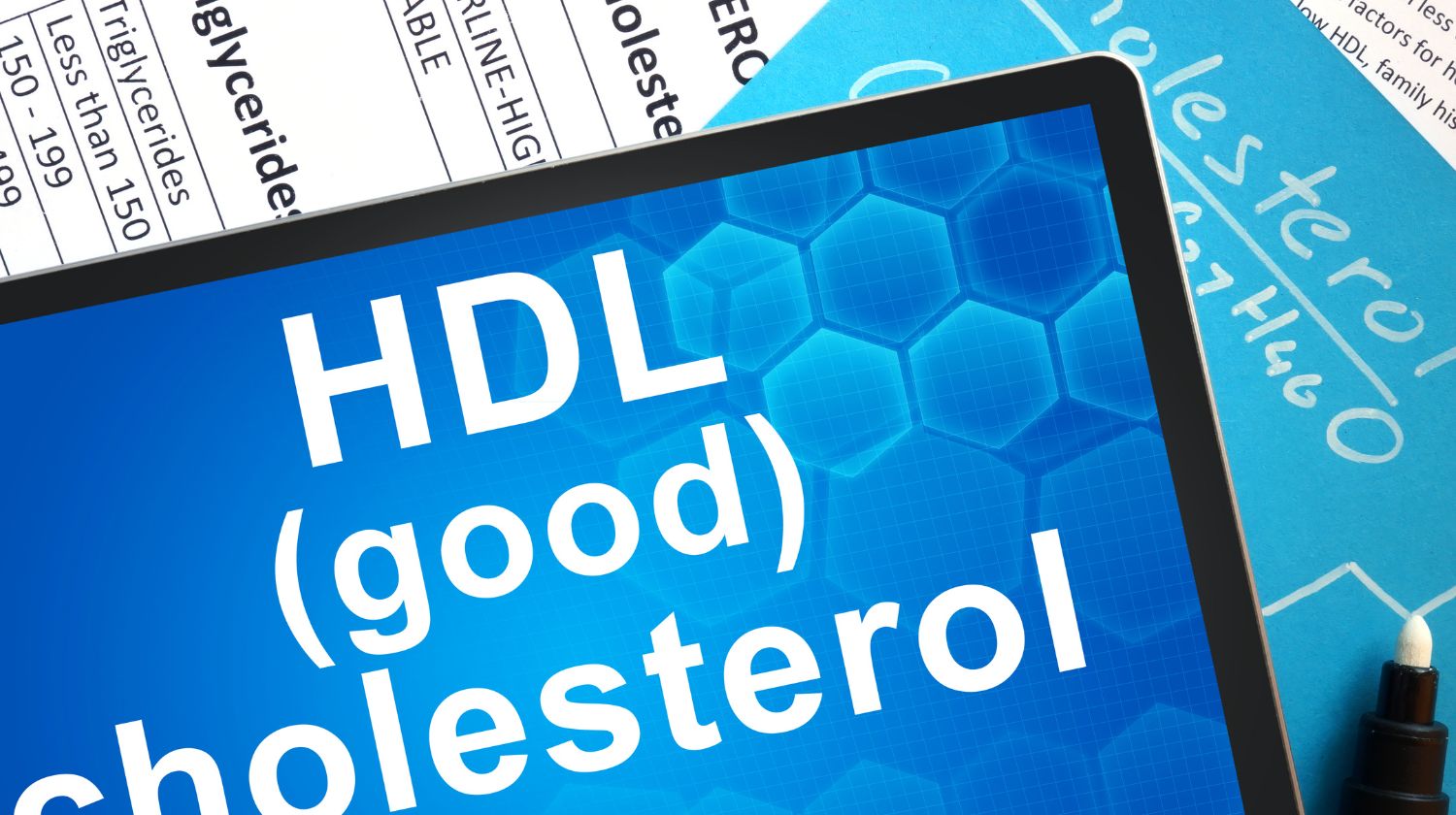Intermittent Fasting Cholesterol: Does It Lower Cholesterol Levels?

Intermittent fasting has been shown to help with weight loss of 7 to 11 pounds in just 10 weeks[1]. But how does intermittent fasting affect other health concerns such as poor sleep, reducing stress, combating cardiovascular disease, and controlling cholesterol levels? This form of fasting can help with all of these but one thing that has become increasingly popular is the use of intermittent fasting to reduce cholesterol levels.
There is still a great deal to learn because a variety of studies mention that intermittent fasting could decrease LDL cholesterol levels (low-density lipoprotein) while others show that total cholesterol levels barely fluctuate between the fasting and nonfasting states. Overall, alternate-day fasting seems to have a wide variety of health benefits and the key to determining whether it will decrease your cholesterol is learning how the process actually works.
Does Intermittent Fasting Lower Cholesterol?
So, does intermittent fasting lower cholesterol? Well, while the exact mechanisms through which intermittent fasting actually influences cholesterol[2] are sometimes difficult to determine and are often inconsistent, multiple options could explain what causes cholesterol levels to fluctuate. Fasting may be attributed to weight loss and reduced calorie intake. Weight loss, as you might already know, has consistently been shown to positively impact cholesterol levels, and intermittent fasting often leads to calorie restriction. Long-term caloric restriction and elimination of trans fats are all highly effective in serum total cholesterol reduction.

What Is Cholesterol?
In simple terms, cholesterol is a lipid, or a type of wax-like fat that is naturally produced in the liver and is also able to be obtained healthily from certain foods like full-fat yogurt, cheese and organ meats. While it is thought that cholesterol is bad for you, it is an essential substance that the human body needs and plays a crucial role in various physiological processes. Despite its reputation as a harmful compound, cholesterol is actually vital for the proper functioning of our cells and the production of hormones.
Cholesterol in general is transported throughout the body via the bloodstream and packaged into particles called lipoproteins. These lipoproteins come in different types, mainly low-density lipoprotein (LDL) cholesterol, high-density lipoprotein (HDL) cholesterol, and triglycerides.
It’s also important to note that not all cholesterol in the body comes from the foods we eat. Our liver produces a significant amount of cholesterol naturally. Trying the best soy protein powder can help with better regulation of cholesterol.
How Does Intermittent Fasting Affect Cholesterol Levels?

It can affect cholesterol levels in a variety of ways but mainly, its effects are caused by the change in metabolism from glucose (sugar and your body’s primary energy source) to fatty acids converted to ketone bodies (chemicals made in the liver to break down fat for energy). Intermittent fasting raises cholesterol levels in some cases and is usually associated with spikes in serum cholesterol (the total amount of cholesterol in your blood) and while this is usually an unwanted result, it does happen. Fasting even while at a normal weight can just as easily cause a reduction in cholesterol by making a switch from burning sugar in the body to burning fat. While results could go either way, don’t let this deter you from giving fasting a try. You can even make use of Ritual vitamins reviews to make it easier.
Another possibility is that because intermittent fasting is a good way to trigger autophagy, a cellular process that removes damaged molecules and organelles, promoting cellular rejuvenation, this contributes to a reduction in cholesterol. Autophagy has been associated with improved lipid metabolism and may contribute to the beneficial effects on cholesterol observed during intermittent fasting.
Additionally, we can’t forget to also consider the fact that intermittent fasting has been shown to improve insulin sensitivity which plays a crucial role in cholesterol regulation. Enhancing insulin sensitivity could lead to favorable changes in both LDL and HDL cholesterol levels.
Decrease In Triglycerides And Changes To Both LDL And HDL Cholesterol
Triglycerides are another type of fat found in the bloodstream. Elevated triglyceride levels are associated with an increased risk of heart disease and IF has shown promise in reducing these levels while also reducing LDL cholesterol (the bad kind), and increasing HDL cholesterol (the good kind).
Weight Loss And Body Composition
Losing weight means that you’re reducing the amount of fat in your body which not only helps with lowering cholesterol but can make you more active and reverse resistance to insulin which makes it significantly easier to regulate lipoproteins and hormones. Also, after only 4 days of alternate-day fasting, it increases fatty acid oxidation. This can be either good or bad depending on how much exercise you get but is also something that could promote additional good habits. Losing weight can help reduce blood glucose levels, lower blood pressure, and limit your risk of cardiovascular disease as well according to the Mayo Clinic[3]. In addition, losing weight can affect your cholesterol levels in other ways that you might not have been aware of.
What Does The Research Say?
Research indicates that there is more to understand about IF and its link to cholesterol but generally speaking, the results are more positive than negative. In simple terms, IF can improve resting heart rate, boost memory in adults, and play a role in limiting cardiovascular risk factors. It should be noted that intermittent fasting can also elevate levels of cortisol and cause a rise in LDL levels in some cases. Overall, alternate-day fasting still has the capability of reducing total cholesterol levels between 6% -21%[4].
You could also expect to see a reduction in triglycerides between 16% and 42% and a 7%-32% reduction in LDL levels. Science basically says that fasting along with a healthy diet is worth a try.
Tips For Intermittent Fasting While Keeping Cholesterol Low
Try A Low Cholesterol Diet

A low cholesterol diet can be focused on keeping your cholesterol low and being heart healthy at the same time. This requires staying consistent with your fruit and vegetable intake, limiting both saturated and trans fats, eating more whole grains and lean protein, and developing a good relationship with healthy fats from things like nuts, seeds, or avocados. You should learn ways to eat avocado for weight loss and also consider trying fish oil supplements. Doing this will help elevate your fasting journey and make it easier to monitor your caloric intake.
Stay Hydrated And Favor Herbal Teas And Water
The key is in avoiding sugary drinks like sodas and saying “NO” to drinks high in caffeine such as different types of coffee. Water and different teas will keep you hydrated, offer a variety of health benefits, and won’t negatively impact your cholesterol or expose you to excess calories. Also, hydration is essential for prolonged fasting and will aid your body in proper digestion, carrying nutrients to your body’s cells, and even preventing constipation while you’re trying new foods.
Monitor Your Cholesterol Levels
Your results while alternate-day fasting will vary and could go in either direction which is why monitoring HDL levels is essential. This can be done through a lipid profile offered by your primary care physician, or you can make use of convenient cholesterol home test kits. Just keep in mind that a healthy level of your total cholesterol should be anywhere under 200 mg/dL[5].
In men, HDL levels should generally be above 40 mg/dL, and in women, it should be above 50 mg/dL. As for LDL, you ideally want a score below 130 mg/dL.
Conclusion
Intermittent fasting appears to have a positive impact on your cholesterol. In fact, a quasi-randomized clinical trial[6] was conducted for 6 weeks and determined that IF protects against cardiovascular issues, raises the sub-optimal HDL and even improves lipid test results. While the research points to the positive effects of intermittent fasting, it is important to approach IF as part of a comprehensive lifestyle approach that includes regular exercise, a balanced diet, and medical supervision.
If you’re considering IF as a strategy to improve your cholesterol levels, consider working with a healthcare professional who can evaluate your specific health needs and provide personalized guidance to get you started, the right way.
+ 6 sources
Health Canal avoids using tertiary references. We have strict sourcing guidelines and rely on peer-reviewed studies, academic researches from medical associations and institutions. To ensure the accuracy of articles in Health Canal, you can read more about the editorial process here
- The Nutrition Source. (2018). Diet Review: Intermittent Fasting for Weight Loss. [online] Available at: https://www.hsph.harvard.edu/nutritionsource/healthy-weight/diet-reviews/intermittent-fasting/#:~:text=A%20systematic%20review%20of%2040,from%202%20to%20104%20weeks.
- Tinsley, G.M. and Paul La Bounty (2015). Effects of intermittent fasting on body composition and clinical health markers in humans. [online] 73(10), pp.661–674. doi:https://doi.org/10.1093/nutrit/nuv041.
- Mayo Clinic. (2022). Wondering about fasting and heart health? [online] Available at: https://www.mayoclinic.org/diseases-conditions/heart-disease/expert-answers/fasting-diet/faq-20058334.
- Allaf, M., Hussein Elghazaly, Omer, Firas, M., Zaman, S., Abdul-Majeed Salmasi, Tsilidis, K.K. and Dehghan, A. (2019). Intermittent fasting for the prevention of cardiovascular disease. [online] 2021(3). doi:https://doi.org/10.1002/14651858.cd013496.pub2.
- Allaf, M., Hussein Elghazaly, Omer, Firas, M., Zaman, S., Abdul-Majeed Salmasi, Tsilidis, K.K. and Dehghan, A. (2019). Intermittent fasting for the prevention of cardiovascular disease. [online] 2021(3). doi:https://doi.org/10.1002/14651858.cd013496.pub2.
- Ahmed, N., Farooq, J., Siddiqi, H.K., Sultan Ayoub Meo, Kulsoom, B., Abid Hussain Laghari, Humaira Jamshed and Pasha, F. (2021). Impact of Intermittent Fasting on Lipid Profile–A Quasi-Randomized Clinical Trial. [online] 7. doi:https://doi.org/10.3389/fnut.2020.596787.

